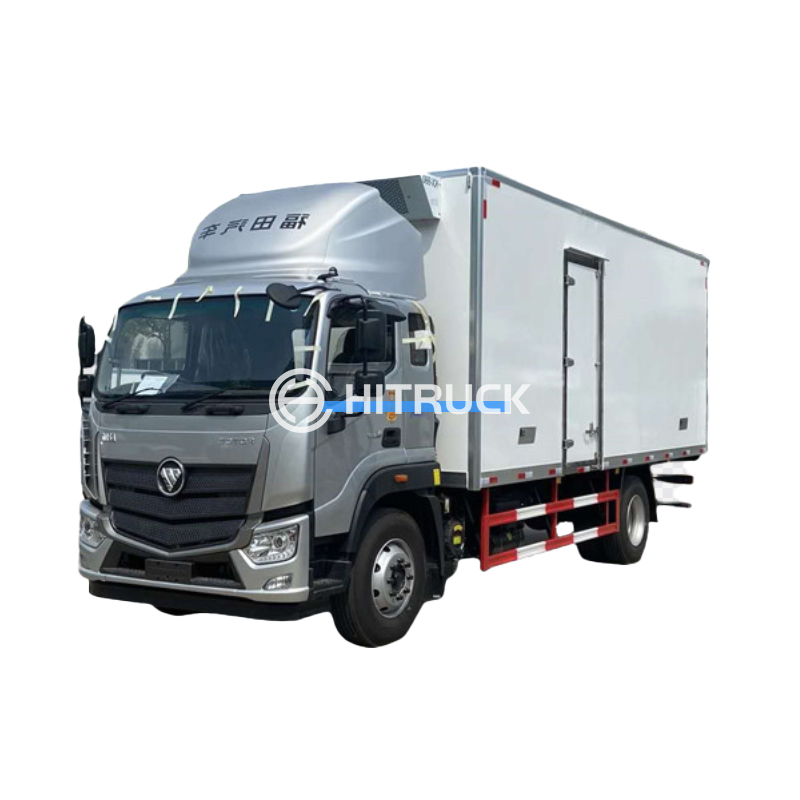Refrigerated Truck Body: A Comprehensive GuideChoosing the right refrigerated truck body is crucial for businesses involved in temperature-sensitive goods transportation. This guide explores various aspects to consider, helping you make an informed decision. We'll cover types, features, maintenance, and more to ensure your cold chain logistics run smoothly.
Types of Refrigerated Truck Bodies
The choice of
refrigerated truck body depends heavily on your specific needs. Several types cater to different applications:
Direct-Drive Refrigerated Units
These units are directly connected to the truck's engine. They offer cost-effectiveness due to reduced fuel consumption, especially for shorter routes. However, they lack the power and cooling capacity of other systems for longer hauls or extreme temperature control requirements.
Independent Refrigerated Units
These units are standalone, powered by their own engine or electric system. This independence provides better control over temperature regulation and allows for continued refrigeration even when the truck engine is off. They are generally more expensive upfront, but often prove more efficient for longer distances and varied climate conditions.
Electric Refrigerated Units
These are gaining popularity due to their environmentally friendly nature. Electric
refrigerated truck bodies are ideal for urban environments and deliveries where noise pollution is a concern. While their initial cost might be higher, the long-term running costs and reduced carbon footprint can be significant advantages.
Features to Consider When Choosing a Refrigerated Truck Body
Selecting the right
refrigerated truck body involves understanding various critical features:
Insulation
The quality of insulation directly impacts energy efficiency and temperature maintenance. Common insulation materials include polyurethane, expanded polystyrene, and fiberglass. Thicker insulation generally provides better temperature control but increases the weight of the body.
Refrigeration System Capacity
This is measured in BTUs (British Thermal Units) and indicates the cooling capacity of the unit. The required BTU capacity depends on several factors including the size of the body, climate conditions, and the type of goods being transported.
Temperature Control and Monitoring
Accurate temperature control and monitoring are essential for maintaining product quality. Advanced systems offer digital displays, temperature recording capabilities, and even remote monitoring features. The ability to program and adjust temperature settings is crucial.
Door Design
The design of the doors impacts both efficiency and convenience. Features such as insulated doors, robust seals, and easy-opening mechanisms are essential to prevent cold air loss and maintain the integrity of the refrigerated environment.
Load Capacity and Dimensions
Choosing the appropriate dimensions is crucial for maximizing cargo space and ensuring efficient use of the truck's capacity. This depends on the dimensions of your typical loads and the type of goods you transport.
Maintenance of Your Refrigerated Truck Body
Regular maintenance is essential to prolong the life of your
refrigerated truck body and ensure optimal performance. This includes: Regular inspections of the refrigeration unit and insulation. Prompt servicing and repairs as needed. Cleaning the interior and exterior regularly to prevent bacterial growth and maintain hygiene.
Finding the Right Refrigerated Truck Body
For a wide selection of high-quality
refrigerated truck bodies, consider exploring options from reputable manufacturers and distributors. We at Suizhou Haicang Automobile sales Co., LTD, (
https://www.hitruckmall.com/) are dedicated to providing reliable and durable solutions for your transportation needs.
Conclusion
Selecting the right
refrigerated truck body is a significant investment requiring careful consideration of various factors. By understanding the different types, features, and maintenance requirements, you can make an informed decision that meets your specific needs and ensures the safe and efficient transport of your temperature-sensitive goods. Remember that proper maintenance is key to maximizing the lifespan and performance of your equipment.












